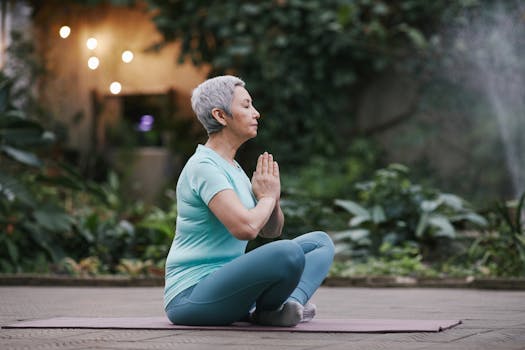Unlocking Happiness: The Mental Health Benefits of Regular Physical Activity
Takeaways: Regular physical activity isn’t just about getting fit; it’s a powerful tool for enhancing mental health. From reducing anxiety to boosting mood, exercise can transform your mind and spirit. Let’s dive into how moving your body can lead to a happier, healthier you!
Hey there! So, let me share a little secret with you: whenever I’m feeling a bit down or overwhelmed, one of my go-to solutions is to lace up my sneakers and hit the pavement (or the gym, or the dance floor). You see, I’ve discovered that there’s something truly magical about moving my body that lifts my spirits and clears my mind. But I’m not alone! Research backs this up, showing that regular physical activity has a plethora of mental health benefits.
Why Exercise Matters for Mental Health
First off, let’s talk about what happens to our bodies when we exercise. When we engage in physical activity, our brain releases endorphins—those lovely little chemicals that act as natural painkillers and mood elevators. It’s like a built-in happiness booster! Plus, exercise can help reduce levels of the body’s stress hormones, such as adrenaline and cortisol. So, if you’ve ever felt a wave of calm wash over you after a workout, you’re not imagining it. It’s science!
Reducing Anxiety and Stress
One of the most significant benefits of regular physical activity is its ability to reduce anxiety and stress. I’ll never forget the time I was juggling work deadlines and personal commitments. I felt like I was drowning in stress! But after a brisk walk around my neighborhood, I felt lighter and more focused. In fact, studies show that just 30 minutes of moderate exercise can significantly decrease anxiety levels. Whether it’s a run, a yoga class, or even dancing in your living room, moving your body can help shake off that anxious energy.
Boosting Your Mood
Ever notice how your mood tends to improve after a workout? This isn’t just your imagination! Regular exercise can combat feelings of depression. I have a friend who struggled with seasonal affective disorder, and she found that joining a local running club not only got her moving but also introduced her to a supportive community. The combination of physical activity and social interaction worked wonders for her mental health!
Enhancing Sleep Quality
Another fantastic benefit of physical activity is improved sleep quality. I used to toss and turn every night, but once I incorporated regular exercise into my routine, I began to sleep like a baby! Exercise can help you fall asleep faster and deepen your sleep. Just be mindful not to work out too close to bedtime, as the endorphin rush might keep you awake!
Building Confidence and Self-Esteem
Let’s not forget about the confidence boost that comes with regular exercise. Remember that feeling of accomplishment after completing a tough workout? It feels amazing! Setting and achieving fitness goals, no matter how small, can enhance your self-esteem. Plus, as you become fitter, you may feel more comfortable in your skin, which is a fantastic boost for mental health.
Finding the Right Activity for You
So, how do you get started? The key is to find an activity that you genuinely enjoy. Whether it’s hiking, cycling, swimming, or even a fun dance class, the best exercise is the one you’ll stick with. I’ve tried everything from kickboxing to Pilates, and what I’ve learned is that mixing it up keeps things exciting and fresh!
Making it a Habit
Creating a routine can help you make physical activity a regular part of your life. I like to schedule my workouts like any other appointment to ensure I prioritize them. And don’t forget to celebrate your successes along the way, no matter how small they may seem!
FAQs
Can I experience mental health benefits from any type of physical activity?

How often should I exercise to see mental health benefits?
Most guidelines suggest at least 150 minutes of moderate aerobic activity per week, but even shorter sessions can be beneficial.
What if I don’t enjoy traditional forms of exercise?
That’s okay! Explore different activities until you find something you love—dancing, martial arts, or even playing with your kids can be great alternatives.
Can exercise replace therapy for mental health issues?
While exercise is a powerful tool for mental health, it shouldn’t replace professional help when needed. It can, however, complement therapy effectively.






